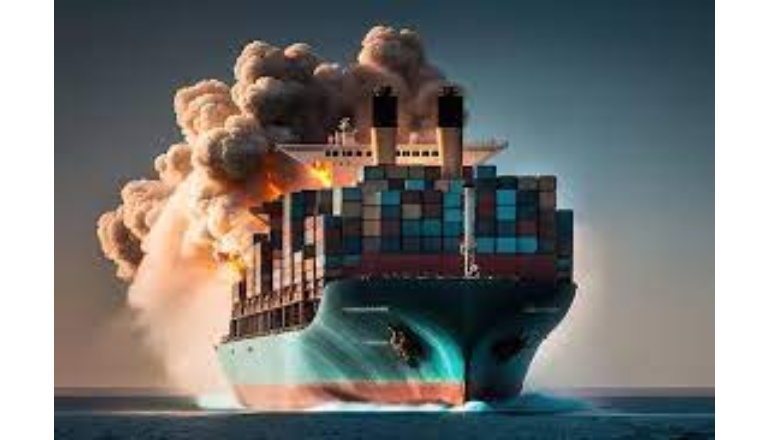“The expectations of life depend upon diligence; the mechanic that would perfect his work must first sharpen his tools.”
— Confucius
ESG is now a strategic necessity, not a compliance formality. Rigorous due diligence is no longer a mere checklist; it is the essential corporate process for assessing non-financial performance, uncovering hidden risks, and securing long-term value through responsible and resilient business practices.
The acceleration of digital transformation has moved environmental, social, and governance (ESG) concerns from ethical footnotes to central pillars of strategic decision-making. Today, an effective due diligence mandate must extend beyond traditional financial audits to capture all long-term, non-financial value drivers.
The cost of complacency: real-world failures
Inadequate due diligence is now recognized as a major governance failure with a quantifiable financial cost. When deal excitement outweighs meticulous investigation, the consequences can be catastrophic. That makes it more critical for the stricter implementation of ESG
The notorious JPMorgan-Frank acquisition is a stark example. JPMorgan paid $175 million for the student-loan startup, believing it had over 4 million customers. A post-acquisition discovery revealed a fundamental fraud: fewer than 300,000 customers existed. The failure to rigorously verify the core asset—the customer data—resulted in a total loss of the acquisition price, demonstrating a critical breakdown in operational due diligence and governance oversight.
Beyond finance: ESG failures are deal breakers.
The scope of modern due diligence has fundamentally expanded to encompass all matters that could destroy value, from environmental liabilities to reputational damage. Ignoring these non-financial factors—especially ESG performance—is no longer merely shortsighted; it is a profound failure of fiduciary responsibility.
The risks now extend deeply into the non-financial realm. The instances below exemplify my point.
Bayer and Monsanto (Environmental/Social): Bayer’s $63 billion acquisition of Monsanto in 2018 became a case study in reputational risk failure. Following the deal, Bayer inherited massive legal liabilities from lawsuits regarding Monsanto’s herbicide, Roundup. This failure in environmental and social due diligence, tied to product safety and legacy litigation, caused Bayer’s market capitalization to shrink significantly, highlighting a massive underestimation of non-financial liabilities.
Barclays (Governance): In a non-M&A context, the Financial Conduct Authority (FCA) fined Barclays £72 million for failing to conduct proper anti-money laundering (AML) due diligence on transactions involving ultra-high net-worth clients identified as ‘politically exposed.’ This governance lapse in their Know Your Customer (KYC) procedures exposed the bank to significant regulatory penalties, proving that ongoing diligence is a fundamental operational necessity, not just a pre-deal event.
ESG: A three-dimensional due diligence framework
Effective due diligence requires a structured approach that integrates all three components of ESG to assess both risks and value creation opportunities.
G: The Foundation of Trust
Governance is the operational heart of any company. Due diligence here focuses on uncovering structural weaknesses. Are the board and management independent and diverse? Are anti-corruption and anti-bribery policies truly enforced? Weak governance, such as poor transparency or a lack of independent oversight, is a clear predictor of future compliance failures that will ultimately erode value.
E: Uncovering Physical and Transition Risk
Environmental due diligence goes beyond historical compliance. It must assess exposure to climate-related physical risks (e.g., assets in flood zones) and transition risks (e.g., being overly reliant on carbon-intensive energy sources facing new regulation). Identifying legacy contamination or inefficient resource use allows an acquirer to integrate mitigation strategies post-close, potentially transforming an environmental risk into an operational cost saving.
S: Vetting the Human Capital and Supply Chain
The social pillar concerns labor practices, human rights in the supply chain, data privacy, and community relations. Failures here—like discovering systemic labor abuses among key suppliers—can cause rapid, devastating reputational damage that destroys market value overnight. Thorough vetting ensures a company meets international labor standards, safeguarding both brand equity and the workforce. According to Deloitte, over 70% of companies have walked away from acquisitions due to significant ESG concerns.
Our take:
By integrating ESG into the very core of the investigation, corporations can move beyond mere compliance to a strategic position of resilience. The findings directly inform the purchase price, warranties, and post-merger integration priorities, turning diligence into a driver of sustainable, long-term financial performance.
In an era of mandatory disclosure and heightened scrutiny, can any executive truly claim they’ve done their due diligence if they haven’t vetted the environment they operate in, the people they employ, and the structure that governs their decisions? Is the cost of a comprehensive investigation truly greater than the cost of a multi-million-dollar write-down? The market consensus suggests the answer is a resounding ‘NO.’












